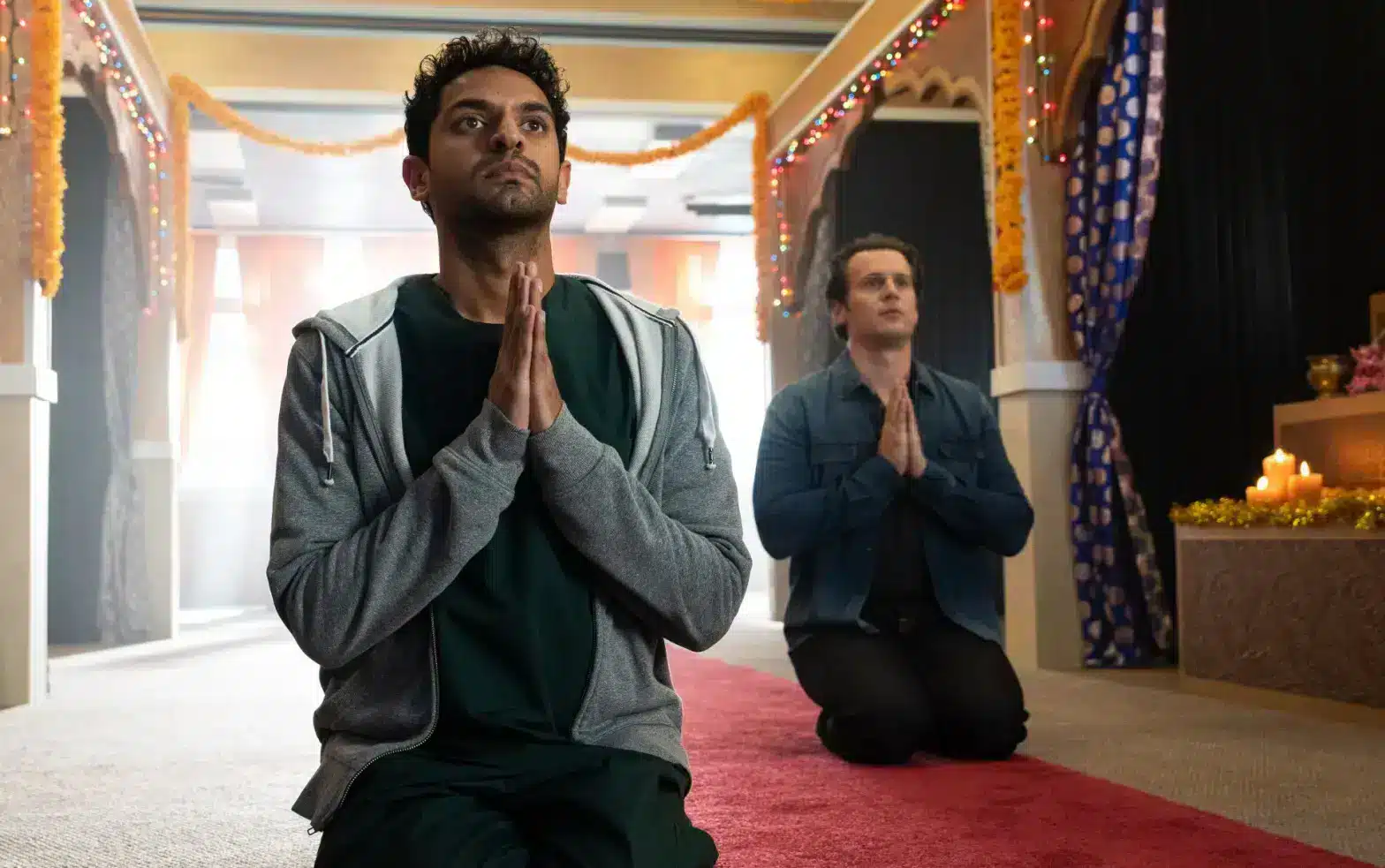
The only thing sweeter than Roshan Sethi’s new rom-com A Nice Indian Boy is probably his chemistry with lead actor (and romantic partner) Karan Soni. The two bounce off each other like atoms during a Sunday morning zoom call ahead of the film’s London Film Festival premiere, perfectly complimenting each other’s contrasting energies. “I’m more comedy and he’s more emotion,” Karan says, with Sethi nodding along next to him, later jumping in with his own two cents on their dynamic. “Karan’s not a confrontational person, and I really am [laughs]. He’s very chill and easygoing, and I’m sure if we were made up of the same constitution as me I’m sure there would be conflict.”
A Nice Indian Boy, adapted from the stage play of the same name by Madhuri Shekar, is groundbreaking in more than a few ways in its portrayal of an interracial same sex couple Naveen and Jay (Soni and Jonathan Groff, respectively), who must navigate the complexities of Indian culture and its relationship with queerness as they plan their upcoming wedding with Naveen’s family. “I think this is the first time something like this has been filmed”, says Karan. “A traditional Indian ceremony with two men in a movie. It felt like we were creating that image for the first time for others like us who have had that fantasy growing up.”
Sethi and Soni joined us to discuss Bollywood’s massive influence on A Nice Indian Boy, making a film that embraces the joy of falling in love, and how the process has influenced Sethi’s relationship with his own family.
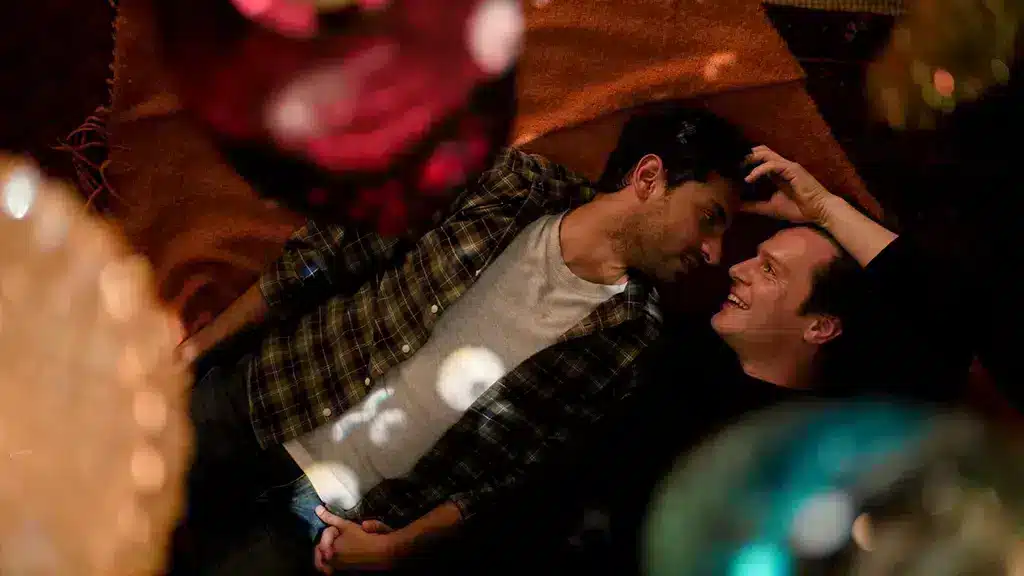
Luke Georgiades: The film feels in many ways like a rejection of the cynicism some rom-coms are pushing these days.
Roshan Sethi: The movie is in dance with Bollywood, which is obviously sickly sweet and has this pop sensibility that’s an escape valve for a culture that is the opposite of that, as far as love is concerned. We both grew up with Bollywood, so we were very much experimenting with the difference between Karan’s character, who is so restrained and reserved in matters of love, and so are his parents, and yet they exist in the context of movies like DDLJ (Dilwale Dulhania Le Jayenge), which imagines a love that is so lavish that the characters are travelling through Switzerland and staying in barns. It’s the relationship between those two ideas of love—the prosaic, practical version and the colourful, full of love, dancing and joy version—that we were interested in. But neither version is cynical, and I think you’re right that many rom-coms are moving in the way of cynicism, mostly because of novelty, not because I think it’s what audiences want.
LG: You’ve said that this film is about an “unashamed expression of love”. Do you feel like culturally we’ve been edging towards being ashamed of romance? Have we started to find everything cringe-worthy all of a sudden?
RS: Yes! But I don’t know what these young people want? To fall in love and have companionship is one of the greatest joys in the world. It shouldn’t be a cynical thing. But by acting so disaffected, I think a lot of people are just dissociating from what they really want. It’s a coping mechanism.
LG: I’m curious as to why Indian culture has always been so strongly rooted in this idea of a grandiose love. Was the culture informed by the Bollywood genre or was it the other way around?
Karan Soni: I think Bollywood was informed by the culture. There’s so much history, but we’re pretty repressed with that sort of stuff. I grew up in India and I don’t think I’ve ever seen my parents kiss on the lips. So that’s pretty wild? But we have these big lavish weddings which have always been our chance to express it, but just for this small window where it’s socially acceptable to throw caution to the wind in that way. I think the movies are so escapist and Bollywood for the longest time would just check every genre because people could only afford to watch one movie per month, and they wanted every experience of action and romance, so it was always this larger-than-life thing.
RS: Indians are really dramatic, sentimental people. However they present, however families “appear” to function, I think they feel very deeply. It’s very regional, but Punjabis, which we both are, certainly feel quite intensely. But yeah, it’s interesting how the primary mode of expression in cinema is something that’s in such contrast to the culture, and it’s probably a reflection of what the real self yearns for. In India, there’s nothing restrained about it. When they give monologues of love in those movies, which they do often, they’re almost always delivered by Shah Rukh Khan, they’re so over the top insane that they almost feel like they’re being delivered by pubescent adolescents, and that quality I find so endearing.
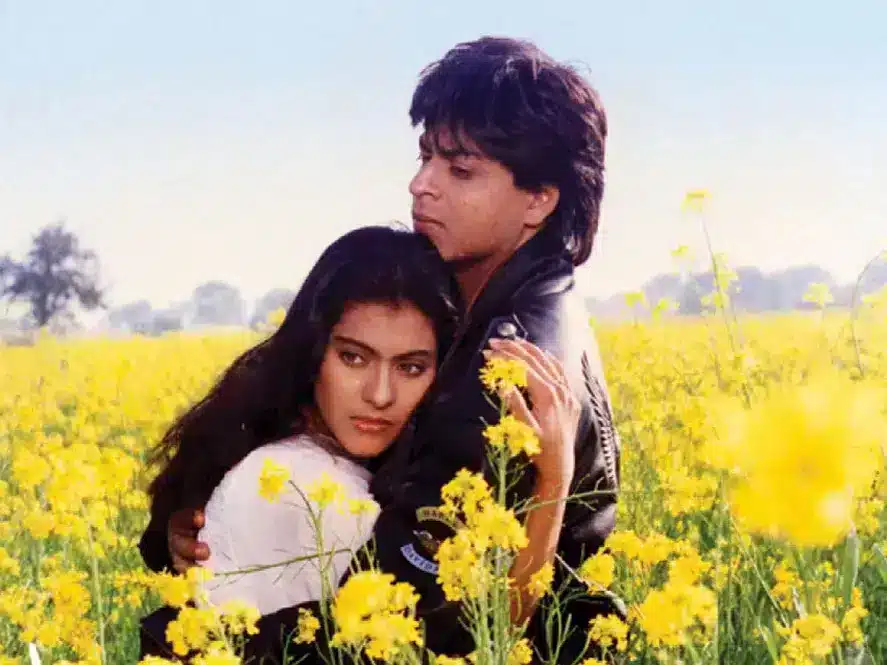
KS: The “real” culture in this movie ties heavily with the relationship and arcs of the parents, and we’ve seen a lot of older audiences be really moved by it, because it doesn’t villainise them. I think the cynical version we’ve been discussing is my character giving a speech like “I don’t need your approval!”, but in our culture we can’t separate from our parents, it’s a common thing in South Asian cultures to grow up in really close families, so we really wanted this to be about a family evolving together as opposed to one character’s journey on their own. That’s the secret strength of the movie, it gives empathy to everyone involved.
RS: In that sense, our film is not very American. The greatest rom-com, other than When Harry Met Sally, is Sex & The City, and in both of those, where are the parents? Are Carrie’s parents alive or dead? Does she not want to call her mom about any of the guys she’s dating? That would be unthinkable if she was Indian. Her mom would be in her closet watching everything. It’s an American idea that you come here, you have self determination, you have such independence that you’re independent from your own family, you conduct all of your affairs purely based on what you want—you don’t worry about you or your partner fitting into the context of your family in the same way Indians do.
LG: Were there other movies or rom-coms outside of Bollywood that influenced this one? I have one in mind, but I’ll let you answer first.
RS: My Big Fat Greek Wedding is a big one…
LG: That’s the one! I’m Greek so the parallels struck me while I was watching your film.
RS: Oh, yes! I could tell by the name. It’s funny, though, that movie is so universally appealing. I know so many Indians who grew up strongly identifying with My Big Fat Greek Wedding and I don’t know a single Greek person.
LG: Why was DDLJ the movie to centre this narrative around? I know it has this legacy in Bollywood canon that is pretty historic.
RS: It all comes from the play this movie’s based on, which is concerned with taking the structure of DDLJ and imagining a queer version of it. Usually in a rom-com the central and cardinal rule is that you keep them apart until the very last moment. This movie violates that rule because two/thirds of the way through the movie they’re together and any issues in their relationship has been fully resolved. That’s the structure of DDLJ. They fall in love through various trials and tribulations, then all that remains is to get the family on board for the entire second half of the movie, and that’s the case for our movie too.
KS: There’s a thematic link too because we both grew up queer, watching Bollywood all the time, but we never saw ourselves in that, obviously, and that’s what the character is going through too. He goes to a million weddings and thinks “I’m never going to have this experience in this way”, and it’s beautiful because there’s references to DDLJ in the final wedding in the movie, and it’s like he’s re-writing this thing that he’s never seen for himself. When we were filming the wedding at the end we were saying “I think this is the first time something like this has been filmed: a traditional Indian ceremony with two men in a movie” because it’s never been done in Bollywood, nor, as far as I’m concerned, in Hollywood either.” It felt like we were creating that image for the first time for others like us who have had that fantasy growing up.
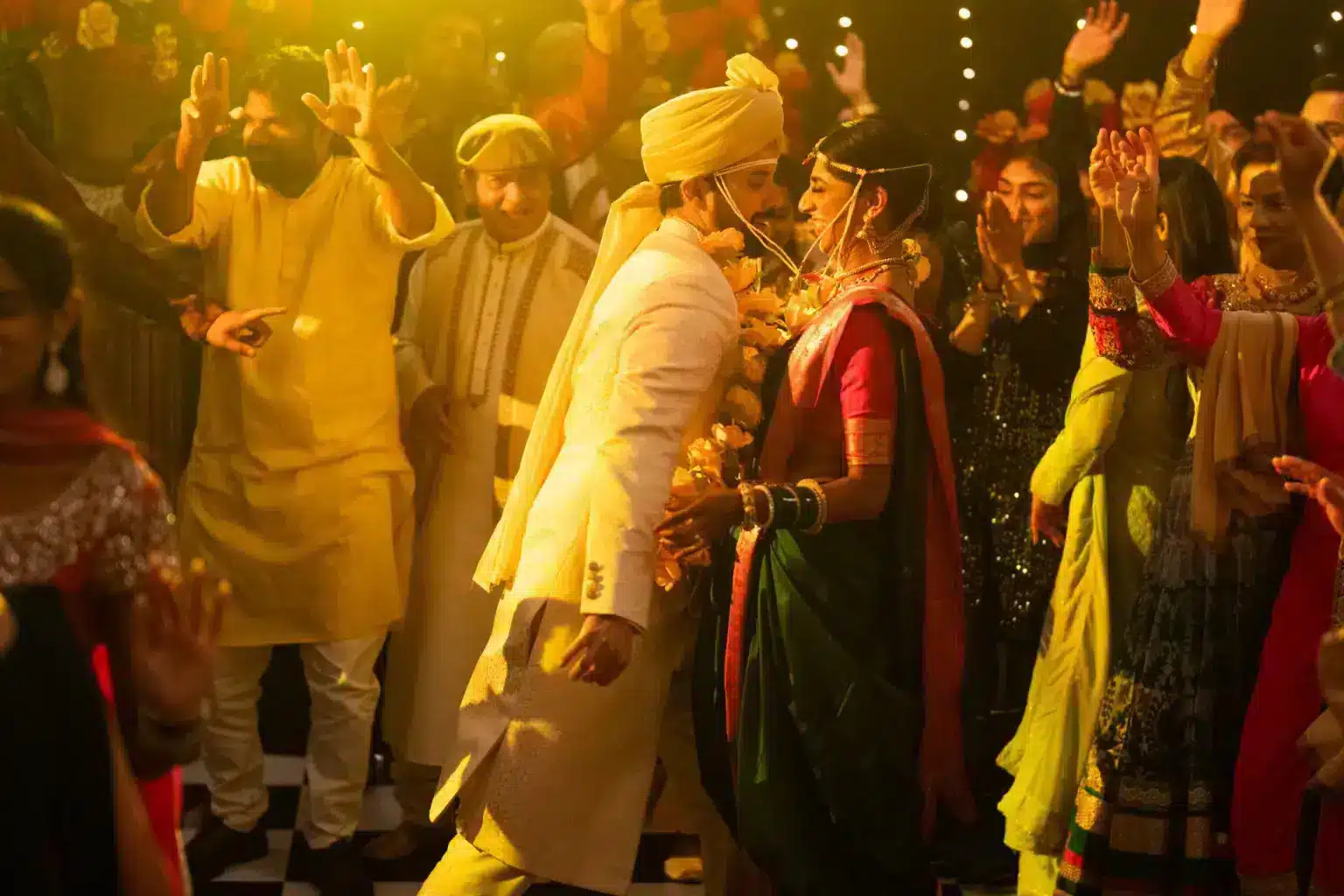
LG: That’s hammered home in one scene in which your character, Karan, quite literally inserts himself into DDLJ. It’s so absurd but it moved me and a lot of audience members to tears. Was it hard to strike that balance of silliness and heart-wrenching?
RS: It’s a scary thing making an independent film and proceed in a way that is slightly sentimental and unashamed of how silly it is, because that is so not the mode for what is usually considered high art. So you’re aiming from the outset not for the audience that are watching and lavishing love on a movie like Aftersun, you’re aiming for a much broader engagement with it regarding both the laughter and the emotion. The easiest thing in the world is to create a really dark, tragic movie. Because it’s very easy to make people cry, but it’s the hardest thing to make people laugh, like real, out-loud laughter.
KS: It’s even harder after making them laugh to then make them cry again. Audiences aren’t coded to naturally switch back and forth.
RS: We had the great advantage of Karan, though, who is such a skilled actor that he can create town within his own performance, in such that he is moving back and forth between emotion and comedy in a way that gives the audience permission to make the same journey.
KS: In many ways the tone is mine and Roshan’s dynamic together. I’m more comedy and he’s more emotion, so we don’t think about it too much because we end up naturally finding it together as we go.
LG: This isn’t your first time making a movie together, but what was it like working with each other on a film which is especially personal for you, like this one is?
RS: I feel so blessed to have met Karan, period, because I had only come out a few months before we met on Raya. Our love story helped me soften. Before we met I only wrote hard dramas—I wrote an abortion biopic, I created The Resident, which is many things but not funny, then suddenly developed this interest in comedy after meeting Karan. We work seamlessly together. Karan’s not a confrontational person, and I really am [laugh]. He’s very chill and easygoing, and I’m sure if we were made up of the same constitution as me I’m sure there would be conflict.
KS: If I know that the ship is well run, there’s no waste, there’s no indecision…when I can feel indecision in the air I get very alert because it’s like…what are we doing? You can feel when a director’s not in charge, and you’d be surprised how many directors show up and look at the DP and they go “sooo what do you think?!”, and you can feel that energy trickling down to the crew. Roshan is the complete opposite of that. We worked less than 10 hour days because he knew exactly what he wanted. I feel very creative in that environment, I feel very purposeful.
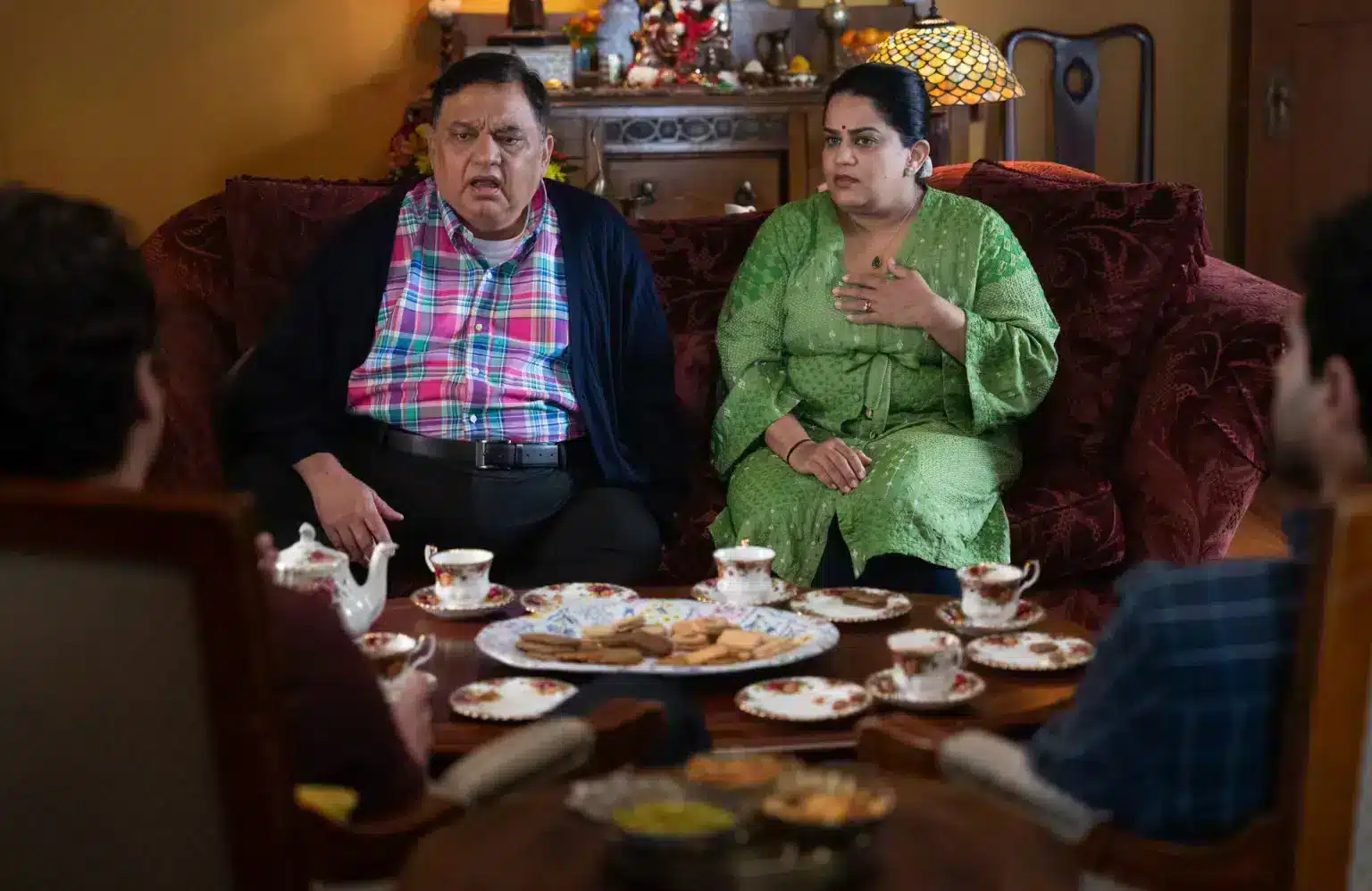
LG: Did elements of your relationship find their way into the central relationship of the movie somehow?
RS: Yeah, we put a lot of that in there. He’s playing a version of himself-
KS: -and of yourself. I feel like in the first half I’m playing a version of me, who is unconfrontational, and likes to blend in and go with the flow, and in the second half, where the character is opening up to the parents and has fallen in love for the first time in a big way, and wants to be accepted, is a bit more your story. When we both read the script for the first time, we were struck at how it felt like it was made for us. Just making this movie together was really special for us.
LG: Jonathan Groff is a perfect casting here, and I think a part of that is that his fans have probably dreamed of seeing this man in a rom-com. It’s like a fan-fiction come to life in that way. Did that aspect play into your decision to cast him, that you’d be satisfying a horde of fans of Mindhunter and Spring Awakening and a bunch of other stuff?
RS: We thought of Jonathan right away, not because of Mindhunter, which we’re too gay to have been big fans of, but he is an icon in the gay community. He came out at a time when it was very difficult to come out as a public figure. He has proceeded since then so openly, with such love and clearness of who he is, and those are the qualities we were looking for in that character.
LG: I know you have or had plans to get married with each other, which Roshan, you’ve said, opened debate within your family.
RS: Working on the movie has been a meaningful experience with my own family. My mom watched it at SXSW and was really moved by it, and it changed things. It’s shifted the undertone of how we interact with each other. It’s not even about whether the movie is good or bad, but when a movie asks you to empathise with a protagonist who is not straight and is indian, and puts you in their shoes, literally, it can be really powerful for people. Karan’s really good at playing that kind of protagonist, who you feel yourself disappearing into as you watch the movie. So it was an interesting thing to watch the effect of that character on my family—I think they understood me a lot better afterwards.
KS: Neither of us wanted to have a big wedding, we definitely spoke about just doing a courthouse, and then we did this movie, and then we thought, “okay, we definitely don’t want to do a big wedding. Never. Again.” [Laughs].



